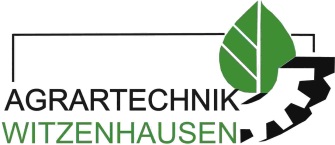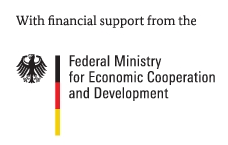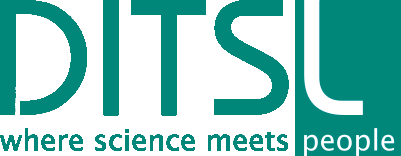 |
 |
 |
ANNOUNCEMENT AND CALL FOR APPLICATIONS
On behalf of the German Academic Exchange Service (DAAD), the University of Kassel and DITSL Witzenhausen organise the
International Germany Alumni Training Seminar:
Strategies of ecological intensification for the sustainable transformation of agri-food systems in the global south
12 - 17 September 2023 in Witzenhausen, Germany
followed by the
Participation in the Tropentag 2023
development oriented and interdisciplinary conference
18 - 23 September 2023 in Berlin, Germany

development oriented and interdisciplinary conference
I18 - 23 September 2023 in Berlin, Germany
The seminar addresses the conservation of agricultural biodiversity in the context of economically and ecologically resilient agricultural systems adapted to climate change and food security. The global community needs to intensify the global fight against hunger, food insecurity and malnutrition in the coming years if it still wants to achieve the goals set by 2030. Among the most important factors exacerbating food insecurity and malnutrition are poverty, climate extremes and the progressing loss of biodiversity. Diverse smallholder agriculture and family farming are the backbone of regional food security in many developing countries worldwide. There is increasing scientific evidence for a positive relationship between the diversity and the productivity and stability of farming systems. The seminar will particularly focus on farming systems based on methods of agroecological intensification and adapted diversification as the chosen strategy to achieve stable production growth and thus food security and sovereignty in the Global South. It will discuss the relationship between agroecosystem-diversity and their productivity, their resilience to variability and external shocks, and the variety of other tangible and intangible ecosystem services they provide (e.g. pest and disease resistance, soil fertility, water storage capacity, pollination). During the seminar, we will discuss possibilities to assess the value of this so-called functional biodiversity. The principles of organic agriculture and its role in enhancing biodiversity and food security will be discussed in more detail.
As we are dealing predominantly with smallholder family farming systems, we will regard them as human activity systems and take a transdisciplinary approach to their analysis. Integrated into the program is therefore a module on social innovations and transdisciplinary and actor-oriented research methods. These serve to identify system-specific innovation and change opportunities, and to consider different knowledge and value systems of different actors and stakeholders. We will set our system boundary beyond the production of food and agricultural commodities and regard agricultural systems together with their associated supply chains (how do commodities reach the consumer) / value chains (how is the value addition distributed along the chain). The strengthening and further development of local agri-food systems and their importance for a diverse and cost-effective food supply, for employment and income in rural areas will be addressed in a workshop on marketing of agricultural products, which also includes excursion on direct marketing and processing. Further field trips and expert inputs will highlight innovative methods of regenerative and agroecological approaches to land use.
The seminar will promote exchange between the participants, facilitate international scientific cooperation and qualify the participants in the field of ecological intensification of agri-food systems. It will stimulate and promote ideas for joint research, strategy development and knowledge transfer. The program in Witzenhausen will include presentations by the participating Alumni, inputs and case studies by invited experts, workshops, group work, discussions, demonstrations and field trials at the Department of Agricultural Engineering in Witzenhausen, as well as excursions and cultural events. The final program will be published once all applications have been reviewed. It is compulsory for participants to attend the entire program: seminar, conference, social events.
The seminar and participation in the Tropentag 2023 are offered by the German Academic Exchange Service (DAAD) in the framework of the program SDG Alumni Projects (https://www.daad.de/en/alumni/funding-programmes-for-alumni/sdg-alumni-projects/). This SDG Alumni Project is organized and hosted by the Department of Agricultural Engineering in the Tropics and Subtropics of the Faculty of Organic Agricultural Sciences of the University of Kassel (Prof. Dr. Oliver Hensel, www.uni-kassel.de/fb11agrar) and DITSL Witzenhausen (www.ditsl.org). The costs will be mainly covered by funds from the DAAD provided by the German Federal Ministry for Economic Cooperation and Development (BMZ).
The seminar is scheduled in the run-up to the Tropentag 2023 Berlin. Tropentag is an annual development oriented and interdisciplinary international conference on resource management, environment, agriculture, forestry, fisheries, food, nutrition and related sciences in the context of rural development, sustainable resource use and poverty alleviation worldwide (https://www.tropentag.de/). The Tropentag conferences are organized jointly by the universities of Berlin, Bonn, Göttingen, Hohenheim, Kassel, Prague, Ghent and Vienna (Austria), and the Council for Tropical and Subtropical Research (ATSAF e.V) in co-operation with the the German Institute for Tropical and Subtropical Agriculture DITSL. In 2023 the thematic focus will be on competing pathways for equitable food systems transformations.
Seminar topics and content
- Agricultural value chains in developing countries – reduction of losses (volume / quality / value) and opportunities for additional value creation
- Renewable energy and water provision appliances to reduce losses and add value in agriculture and food processing
- International and national standards for organic products and strategies for export market access
- Marketing of agricultural products including the role of business plan development
- Regional and international value chains and the role of certification and accreditation
The seminar program in Witzenhausen will include: Sessions and workshops, presentations by the participating Alumni, inputs, and case studies by invited experts, group work and group discussions, demonstrations and field trials at the Department of Agricultural Engineering in Witzenhausen, excursions and cultural events.
The final program in Kassel / Witzenhausen will be published once all applications have been reviewed. It is compulsory for participants to attend the entire program: seminar, trade fair, social events.
Eligibility criteria for participation
This seminar targets Alumni of German universities who
• are citizens of countries listed on the OECD DAC list (http://www.oecd.org/dac/financing-sustainable-development/development-finance-standards/daclist.htm)
• spent at least 3 months in Germany on professional errands (study, training, teaching, research)
• currently live and work in their home countries.
- that are citizens of countries listed on the OECD DAC list (http://www.oecd.org/dac/financing-sustainable-development/development-finance-standards/daclist.htm)
- who spent at least 3 months in Germany on professional errands (study, training, teaching, research)
- who currently live and work in their home countries
You should have
(1) a proven background in academic fields relevant to the topics of agriculture and quality management of agricultural value chains
(2) professional experience and personal interest in one of the following areas: research, education, NGOs, government agencies, policy making, project development, local communities, and related stakeholders
(3) the requirements to act as a potential multiplier who will present the seminar results in your home country and thus disseminate the acquired knowledge as well as develop ideas and projects for regional implementation
(4) adequate English language proficiency to actively participate in the workshops and discussions
Eligibility for repeated attendances at Alumni Special Projects:
Alumni are eligible to participate in up to two DAAD Alumni Special Projects within four years. The year of participation, not the year of application, is decisive for the calculation (this rule does not apply for attendance in a digital Alumni Special Project).
Cost coverage
- International return ticket to Frankfurt and from Frankfurt/Berlin (lowest possible economy class airfare – regional ceiling prices: Latin-America 1.000€, Sub-Sahara Africa 800€, Middle East and North Africa 700€, South-East Asia 900€, Asia other countries 800€)
- Train tickets (2nd class): Airport to Witzenhausen – preferably Rail & Fly
- Travel health insurance (max. 30 Euro)
- Visa costs
- Accommodation and a contribution to the living expenses (half-board) during the seminar stay in Witzenhausen.
- Transport on excursions
- Transport from Witzenhausen to Berlin
- Accommodation and a contribution to the living expenses during the stay in Berlin
- Entrance fees at the trade fair in Berlin
- Transport from the hotel in Berlin to the departure airport
Please note: Any other than the above costs must be covered by yourself. This includes particularly:
- Transport between your place of residence and “your” airport
- Travel costs associated with your visa application in your country of residence
- Personal living expenses exceeding the provisions by the program (half-board) in Witzenhausen and Berlin
- Local transport in Germany for private errands not associated with the seminar
Extensions of stays before the seminar / after International Green Week in Berlin are possible only up to 5 working days and upon submission of a comparison of flight ticket prices before you start organizing / booking your trip. Any additional cost incurred by deviating from the official arrival / return date (see below) must be borne by yourself. This applies to the airfare and to additional further travel-, subsistence-, and other costs that may arise from an extension.
In exceptional cases, extensions beyond 5 days may be granted by DAAD, but only if they serve an official purpose, e.g. professional visits to universities, organizations, institutions, companies etc. Such extensions must be applied for well in advance and must be approved by DAAD before you start your travel. Applications must be substantiated by official invitations, agreed work plans and schedules of visits by the respective organisations that you wish to visit. Please communicate well in advance – possibly already with your application for this Alumni Special Project – should you plan an extension of your stay. For any extension you need to organize your accommodation by yourself, and, very importantly, you must make sure to have a valid health insurance for the extension days.
Travel dates:
|
13 |
January 2022 |
Arrival in Witzenhausen |
|
14 - 19 |
January 2022 |
Seminar in Witzenhausen |
|
20 |
January 2022 |
Travel from Witzenhausen to Berlin |
|
21 - 24 |
January 2022 |
Participation in the trade fair International Green Week in Berlin |
|
25 |
January 2022 |
Departure from Berlin |
It is essential that you participate from the first day of the seminar in Witzenhausen to the last day of the trade fair International Green Week in Berlin.
Application procedure
Your application (in English language) must include the following documents in one single pdf file:
- a short CV with photograph and relevant documentation of Alumni status
· an abstract on the subject of either “Sustainable International Agricultural Value-Chains” or “Meeting Quality Challenges in International Agri-Value Chains” with reference to the participants' home country and self-involvement in the field of agriculture and/or agricultural value chains (the main topics are listed above; abstracts must not exceed one page; please use font type “Arial”, font size 11, 1.5 line spacing)
· a short description of your present duties / position and your personal professional goals, indicating your envisaged field of activities and duty level
· an overview on seminars, workshops or conferences visited in Germany after finishing your studies in Germany
You should emphasize your motivation and personal / professional benefit of your participation in the application form. Please illustrate how you are planning to imply the gained knowledge and which possible stakeholders for collaboration you may identify for your professional career.
The document should be named ‘Last name_First name_country’
(e.g. Anne_Siegmeier_Germany).
Please send your application, as one single pdf file, latest by 29 August 2021 via email to: This email address is being protected from spambots. You need JavaScript enabled to view it.
Please note: Completeness of personal data mentioned in the online application form will affect your eligibility as a participant
After the review by the local organizing committee and DAAD, the invited participants will be notified in end-September 2021 at the latest.
Special note
Given the world-wide pandemia and the current status of uncertainty of its development, DAAD will decide in due course to replace the event by an online version. This will imply modifications of the program which will be announced to participants.
For further questions, please contact Anne Siegmeier (This email address is being protected from spambots. You need JavaScript enabled to view it.).
Witzenhausen, July 2021

